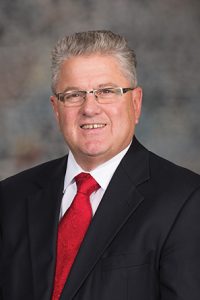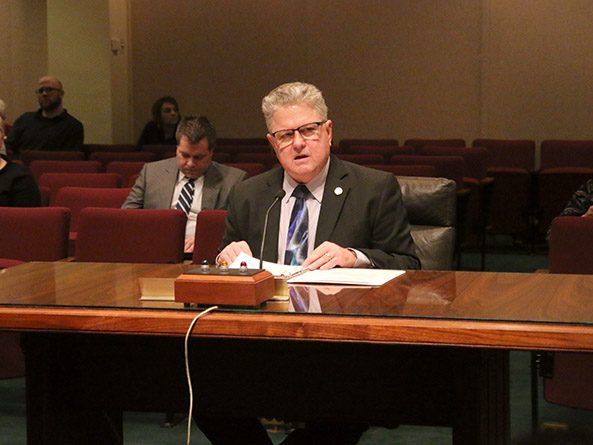Dental assistant licensure proposed
Nebraska dental assistants would have the option of becoming licensed under a bill heard Jan. 18 by the Health and Human Services Committee.

Seward Sen. Mark Kolterman, sponsor of LB18, said the bill is essentially the same as a measure he introduced in 2016, which was the result of six years of discussions among dentists, hygienists and others. That bill advanced from committee with strong support, he said, but the Legislature ran out of time to take action on it during floor debate.
LB18 would create a new category of licensed dental assistant. Licensure would be optional under the bill, which also would create the position of expanded function dental assistant.
Kolterman said some dental practices in the state would benefit from dental assistants being able to obtain licensure and perform more procedures. However, he said, the goal of the bill also is to allow individuals currently employed as dental assistants to remain unlicensed if they choose.
“The goal is to create safe and quality care at the least cost and to be able to allow Medicaid providers the ability to appropriately delegate functions,” he said.
Under the bill, a licensed dental assistant applicant must be a graduate of an accredited dental assisting program or have performed a minimum of 1,500 hours of dental assisting. Passage of an exam and completion of continuing education also would be required.
A licensed dental assistant would be authorized, under the indirect supervision of a licensed dentist, to:
• perform coronal polishing;
• take dental impressions and x-rays; and
• monitor and administer nitrous oxide analgesia.
In addition to creating the position of licensed dental assistant, the bill would provide the option for credentialing in expanded duties for licensed dental assistants, dental hygienists and public health hygienists.
Cynthia Cronick, representing the Nebraska Dental Assistants Association, testified in support of the bill. Allowing dental assistants to become licensed would provide a career path for individuals who desire it, she said, without placing an undue burden on dental practices.
“This ensures that current dental assistants do not lose their jobs or any of their duties,” she said. “LB18 ensures that no dental assistants are displaced.”
Jessica Meeske, a children’s dentist with practices in Hastings and Grand Island, also testified in support. Allowing other members of a dental team the option of taking on more procedures in a dental practice would improve access to care and oral health in rural Nebraska, she said.
Meeske said that Medicaid covers nearly half of the children in Nebraska, including 70 percent of those seen in her practice. As long as Medicaid reimbursement remains stagnant, she said, the reality of these numbers puts pressure on dental practices.
“Allowing us to delegate those duties where the dentist’s expertise is not needed allows us to be more efficient in how we deliver dental care,” she said.
No one testified in opposition to the bill and the committee took no immediate action on it.


